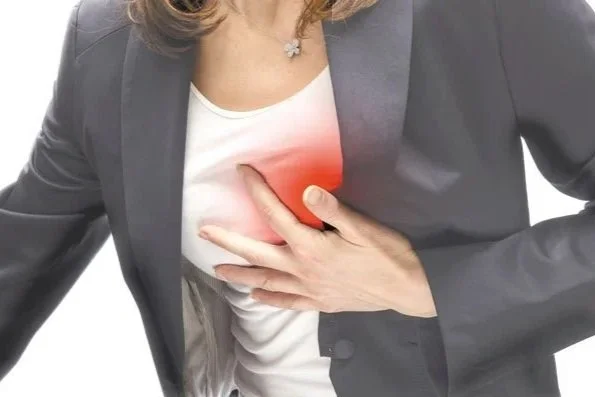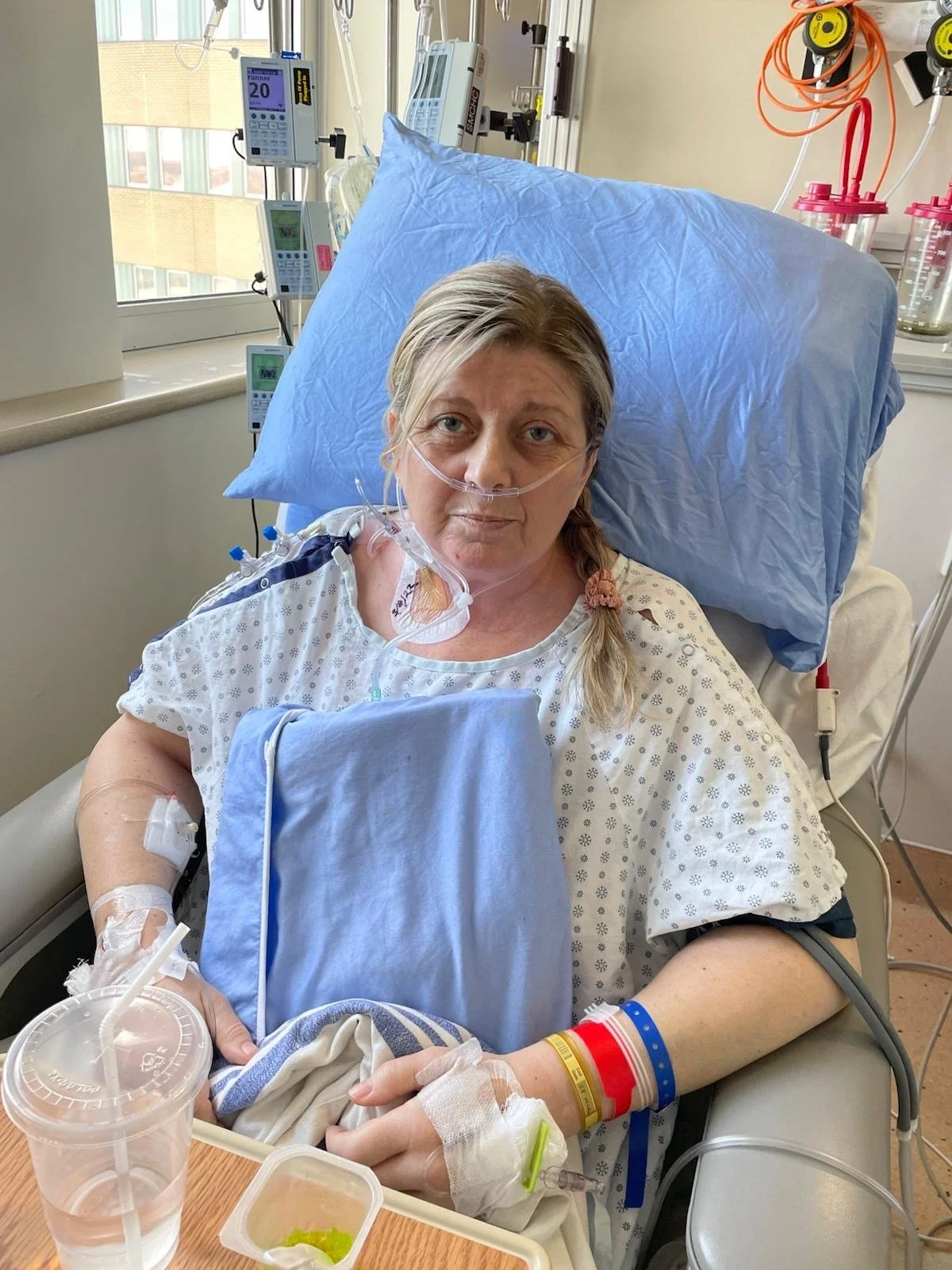From Cardiac Crisis to Cardiac Coaching:
A Survivor’s Story
It was January when my cardiac surgeon told me I needed emergency open-heart surgery. I looked at my calendar and suggested July. He said he was trying to open his schedule for February. That’s when it hit me: this was serious.
Why do we belittle our symptoms?
The Silent Killer
Cardiovascular disease (CVD) is the leading cause, the #1 CAUSE, of premature death for women in Canada.
Every 16 minutes, a Canadian woman dies from heart disease. Yet, signs are missed in 78% of women, and two-thirds
of clinical heart research still focuses on men.
Women are less likely than men to:
Receive timely treatment or diagnostic tests
Be hospitalized or referred to a cardiologist
Get an ECG within 10 minutes of arrival
Receive proper medication or thrombolytic therapy
*Note: A Canadian woman dies every 16 minutes from CVD but those stats don’t include the
women with CVD that die by suicide.
Long-term mental health risks such as depression and suicidal ideation have been associated
with CVD and Heart Failure.
Women often describe their symptoms differently – pressure, discomfort, fatigue – rather than sharp chest pain, which leads to frequent misdiagnosis. Even when women do seek help, they are often dismissed or misunderstood. Part of the problem is women often minimize their symptoms.
Everyone is impacted though. Cardiovascular disease (CVD) is the leading cause of death worldwide. It doesn't discriminate - it impacts men and women. In 2021, CVD caused an estimated 20.5 million deaths, or about 56,000 per day. In Canada, about 14 adults with heart disease die every hour.
Locally, approximately 7,900 emergency department visits occur in Alberta every year for strokes and transient ischemic attacks. In 2021-2022, there were approximately 5,220 cardiac hospitalizations and 425 readmissions in Alberta (Alberta Health Services CvHS SCN™ TRM 2023-2026).
And “almost 2,000 patients undergo cardiac surgery in the Calgary Zone each year” (Calgary Health Foundation).
I was one of those stats – and I was lucky. I had a top cardiac surgeon who could perform a fairly rare procedure - and I survived the complex operation. But survival came at a cost.
Life on the Ward
After surgery and a few blurry days in ICU (complicated by collapsed lungs), I was moved to the Step-Down Unit. I was in pain, barely mobile, and confined to a catheter. What shook me most was hearing another patient, a woman in mental distress, cry out all night. I called out to her, offering support. She calmed and started talking. But a nurse interrupted telling me that I needed my sleep. When I asked the nurse if a mental health team member could be brought in, she simply said sadly, “I wish. What you see is all the support we have.” The ratio of nurses to patients seemed impossible.
Mental Health Matters
On the cardiac ward, I met others battling not just heart issues but emotional trauma. One woman said she regretted having the surgery; a man joked bitterly about “a lifetime of dry chicken and brussels sprouts.” I felt grateful – fortunate – until I wasn't.
More than 50–60% of cardiac surgery patients report post-surgery anxiety, stress, or depression (NIH). Some studies show as high as 71%. Studies have also shown cognitive dysfunction that persisted in up to 40% of patients even five years after surgery.
Depression can double the risk of morbidity or mortality in heart patients (American Heart Association). Approximately 1 in 8 heart attack survivors experience PTSD; 1 in 4 stroke survivors; and 50% of cardiac arrest patients report depression or PTSD symptoms, according to a study published in American Psychologist in 2018.
And those statistics don’t begin to cover the impact on working professionals, caregivers, or single parents—like me.
My Recovery—and Relapse
As a single mother in my early 50s, I had two daughters finishing university and no partner to help. I came home swollen, exhausted, in pain, and reliant on a walker. My daughters were my caregivers – even to help me in and out of bed or accompany me to walk down the street! Just as I started making progress, I was hospitalized again—this time with painful pericarditis.
Despite this, I returned to work as a COO too soon. I was supposed to ease in part-time, 2-3 times per week, but impossible deadlines and poor accommodations forced me back into working overtime. I experienced brain fog, emotional dysregulation, and crushing fatigue. I was oversharing, crying, and collapsing after work. Eventually, I relapsed with pericarditis—again. The 3 months of medication hit me hard with side effects and I realized I needed more recovery time.
When I returned from that medical leave, I was terminated. No warning. No gratitude. This was a company I co-created and gave nearly a decade of my life to. I had sacrificed holidays, time with my family, and ultimately my health for its mission.
Depression can persist for several years after open-heart surgery.
It can be a significant cause of morbidity and mortality after cardiac surgery, along with cognitive dysfunction.
Some reasons why patients might feel depressed after heart surgery include:
Not knowing what to expect
PTSD, stress, anxiety
Being unable to do simple tasks without becoming tired
(The American Heart Association)
I spiraled into depression, anxiety, and trauma responses. I had suicidal thoughts and felt the pressure of continuous stress. I wanted help, but I couldn’t find the support I needed. That’s why I created what didn’t exist: Cardiac Coaching.
Why Cardiac Coaching?
Recovery doesn’t end when you leave the hospital. Cardiac Coaching is the bridge between just surviving to truly thriving again.
It provides:
Education on what to expect during hospitalization and recovery
Emotional support from someone with lived experience
Mental health guidance to manage stress, anxiety, and depression
Peer support groups to reduce isolation and trauma
Rehabilitation support to encourage progress and celebrate goals
“Cardiac rehab…a specialized program that typically includes education about stress and emotional factors... is a chance to normalize emotional responses and reduce depression. Patients who don’t engage in it recover more slowly.” – American Heart Association
A more holistic approach to cardiac recovery is not just helpful – it’s necessary. And it’s now available!
Final Thoughts
I didn’t just survive open-heart surgery—I survived the system around it. And now, I’m here to help others navigate what comes next. Let my experience be your guide. With proper coaching, compassionate care, and the right support, recovery can be more than survival.
Heart surgery may have saved your life but with Cardiac Coaching, you can truly start to live again!



